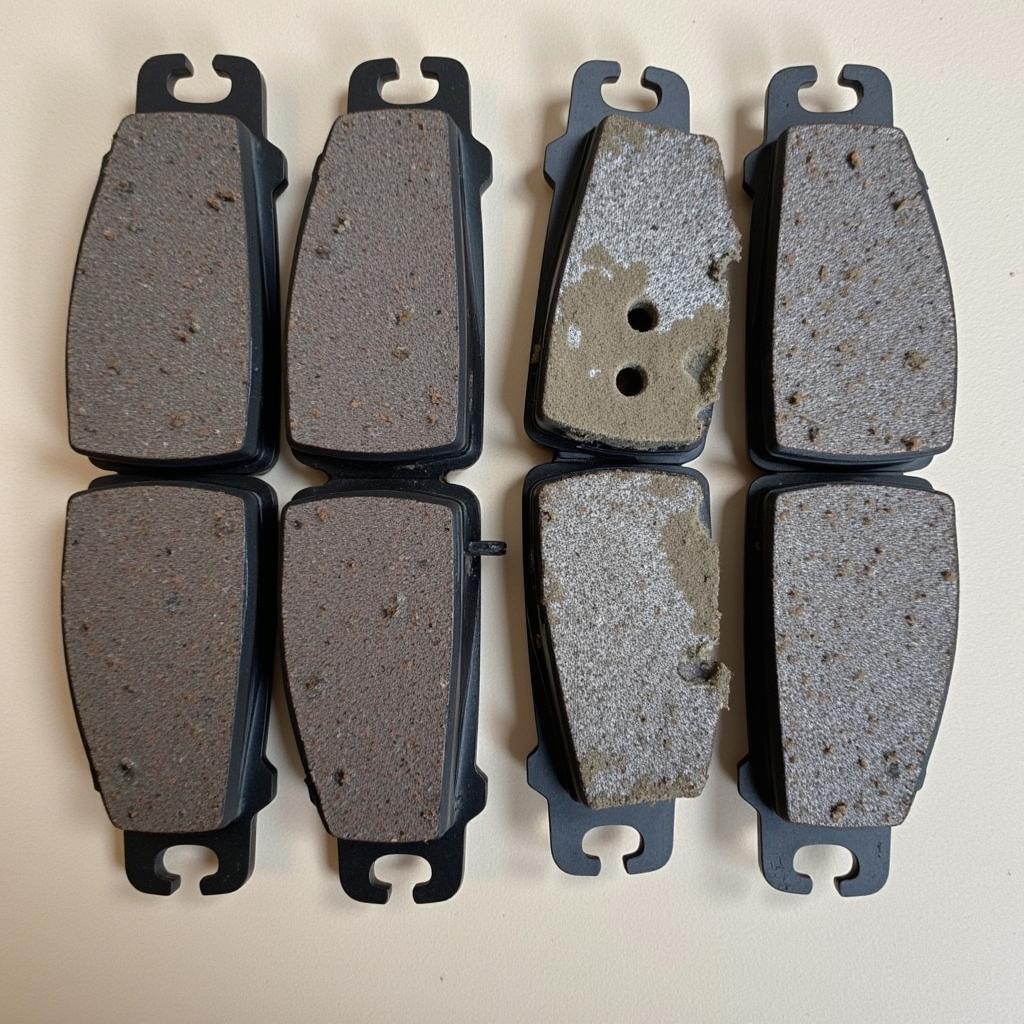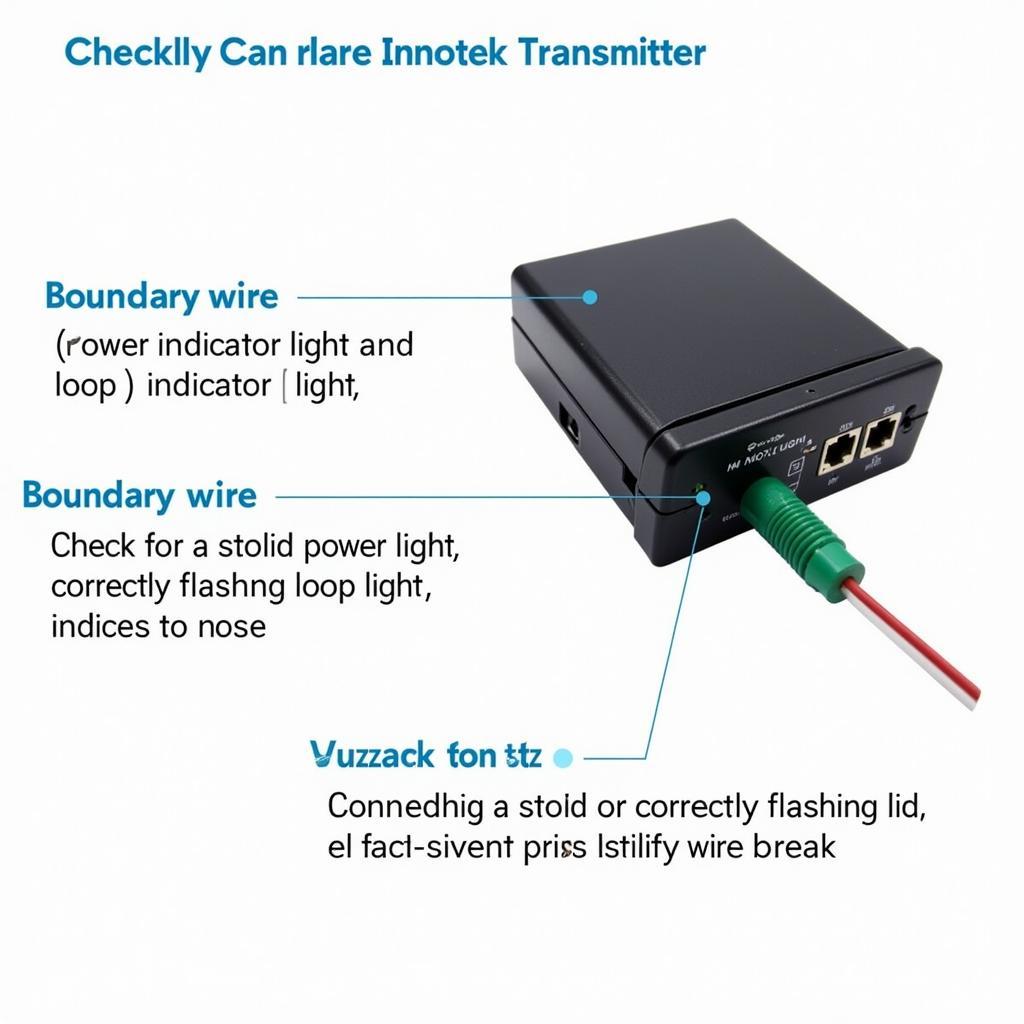If you’re driving a 2011 Chevy Colorado and your brake warning light suddenly illuminates, it’s crucial not to ignore it. This warning light is your truck’s way of telling you something is amiss with the braking system, which could compromise your safety and that of others on the road. This article will delve into the common causes behind a 2011 Chevy Colorado brake warning light and provide potential solutions to get you back on track safely.
Understanding Your Chevy Colorado’s Brake System
Before we dive into the specifics of the warning light, it’s helpful to understand the basics of your truck’s braking system. The 2011 Chevy Colorado, like most modern vehicles, utilizes a hydraulic system that relies on brake fluid to transmit force from the brake pedal to the wheels, ultimately slowing or stopping the vehicle. This system is comprised of several key components, including:
- Brake Pedal: This is where the driver initiates the braking action.
- Brake Booster: This component amplifies the force applied to the brake pedal, making it easier to stop the vehicle.
- Master Cylinder: The master cylinder converts the mechanical force from the brake pedal into hydraulic pressure.
- Brake Lines: These lines carry the pressurized brake fluid from the master cylinder to the wheels.
- Brake Calipers and Wheel Cylinders: These components house the brake pads (for disc brakes) or brake shoes (for drum brakes) and use the hydraulic pressure to push them against the brake rotors or drums, creating friction and slowing the vehicle.
Common Causes of the Brake Warning Light
When the brake warning light on your 2011 Chevy Colorado comes on, it could be indicating a few different issues, ranging from minor to serious. Let’s explore some of the most common culprits:
1. Low Brake Fluid
One of the most frequent causes of the brake warning light is low brake fluid. As brake pads and shoes wear down over time, the brake fluid level in the master cylinder naturally decreases. If the fluid level drops below a certain point, the warning light is triggered.
Solution: Check your brake fluid level. The reservoir is usually located near the firewall on the driver’s side of the engine compartment. If the fluid level is low, add the appropriate DOT 3 or DOT 4 brake fluid (check your owner’s manual for the correct type). However, simply adding fluid might not address the root cause, which could be worn brake pads. It’s essential to have your braking system inspected by a qualified mechanic.
2. Worn Brake Pads
Brake pads are designed to wear down over time. As they wear thin, the brake calipers need to extend further to engage the rotors, which lowers the brake fluid level and can trigger the warning light.
Solution: If your brake pads are worn, they will need to be replaced. This is a relatively straightforward repair for a mechanic.
 Comparing Worn and New Brake Pads
Comparing Worn and New Brake Pads
3. Brake Fluid Leak
A leak in your brake system, whether in the lines, hoses, or calipers, will result in a loss of brake fluid and pressure. This is a serious issue that can significantly impact braking performance.
Solution: If you suspect a brake fluid leak, it’s crucial to have your vehicle towed to a mechanic immediately. Driving with a brake fluid leak is extremely dangerous.
4. Faulty Brake Light Switch
The brake light switch, typically located near the brake pedal, is responsible for activating your brake lights when you press the pedal. A malfunctioning switch can sometimes trigger the brake warning light, even if there’s nothing wrong with the braking system itself.
Solution: A faulty brake light switch needs to be replaced. A mechanic can diagnose this issue with a simple test.
5. ABS Issue
The 2011 Chevy Colorado is equipped with an Anti-lock Braking System (ABS). If there’s a problem with the ABS module, wheel speed sensors, or related wiring, it can trigger the brake warning light.
Solution: Diagnosing and repairing ABS issues typically requires specialized equipment. It’s best to take your vehicle to a qualified mechanic or dealership.
What to Do When the Brake Warning Light Comes On
1. Assess the Situation: If the brake warning light illuminates while driving, pull over to a safe location as soon as possible.
2. Check Your Owner’s Manual: Your owner’s manual will provide specific information about the warning lights in your vehicle, including what to do when they illuminate.
3. Check the Brake Fluid Level: If it’s safe to do so, carefully check the brake fluid level in the reservoir.
4. Seek Professional Help: If the brake fluid level is low, you suspect a leak, or the warning light remains on, do not attempt to drive your vehicle. Call a tow truck and have it taken to a trusted mechanic or dealership for diagnosis and repair.
Expert Insights
[Insert Name of Automotive Expert], a seasoned automotive technician with over 20 years of experience, emphasizes, “Never ignore a brake warning light. It’s always better to err on the side of caution and have your braking system inspected by a professional. Timely maintenance and addressing any issues promptly can prevent more significant and potentially costly repairs down the road.”
Conclusion
The brake warning light in your 2011 Chevy Colorado should never be ignored. While it could indicate a minor issue like low brake fluid, it could also be a sign of a more serious problem requiring immediate attention. Understanding the common causes, knowing how to react, and seeking professional help when necessary will ensure your safety and keep your truck running smoothly for miles to come.

